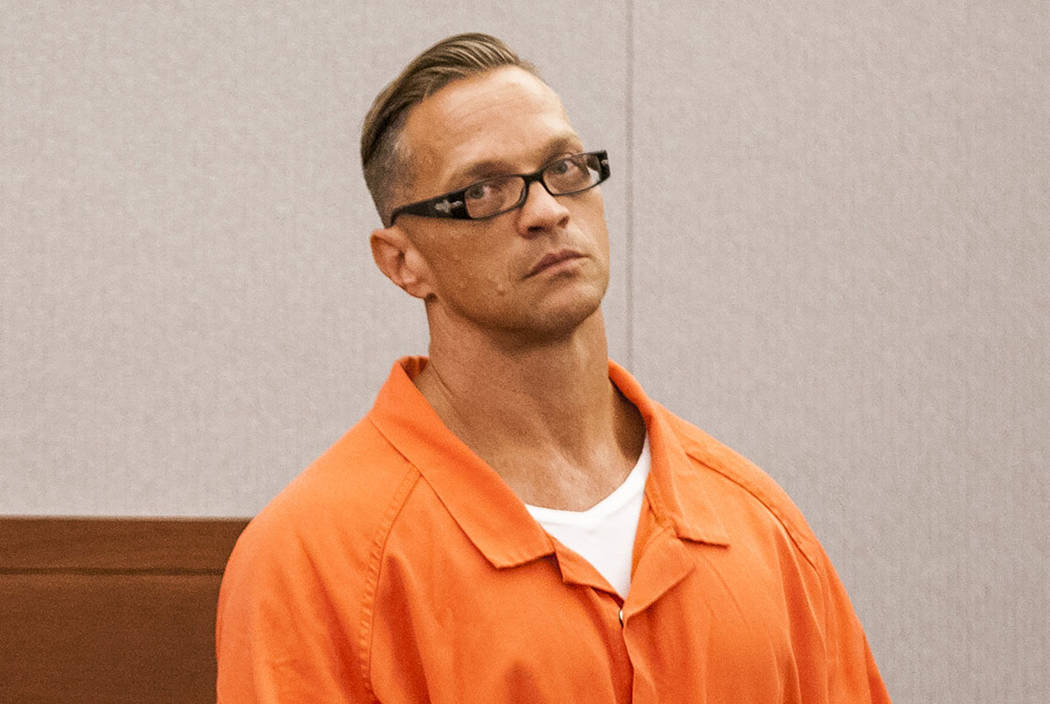Lawyer says Dozier seemed in good spirits before his death
In one of Scott Dozier’s final phone calls, he reached out to the office of Las Vegas attorney Tom Ericsson, who had represented the condemned prisoner for the last 2½ years of his life.
Dozier spoke with someone on Ericsson’s staff Friday and “seemed to be in good spirits,” the lawyer said.
“Certainly no indication he was contemplating anything drastic,” Ericsson told the Las Vegas Review-Journal on Monday.
The 48-year-old prisoner died from an apparent suicide Saturday afternoon, according to the Nevada Department of Corrections.
Dozier, who had spent nearly a dozen years on Nevada’s death row, had been at the center of a debate over the state’s use of certain drugs in capital punishment after he pressed for the state to carry out his sentence.
Prison officials said Dozier was found “hanging from a bed sheet tied to an air vent in his cell at Ely State Prison.”
Dozier was sentenced to death for first-degree murder and robbery in the killing of 22-year-old Jeremiah Miller. Dozier was convicted in Arizona in 2005 of second-degree murder for killing 26-year-old Jasen Green.
Ericsson last spoke directly with Dozier a little more than a week before his death.
The inmate asked about the political turnover underway in the state and the potential effect those changes would have on the death penalty.
But Dozier “didn’t indicate he was going to have to change his course of action and do something on his own,” the lawyer said.
Gov. Steve Sisolak, who took office Monday, has said he opposes the death penalty except in the most serious cases. New Attorney General Aaron Ford has said he opposes capital punishment.
Before Ford took office, lawyers for his predecessor, Adam Laxalt, were in the midst of a legal battle over a judge’s decision to block a sedative from being used in the state’s lethal injection cocktail.
A spokeswoman for Ford wrote in an email Monday that “the new team hasn’t had a chance to discuss the Dozier case yet.”
Ericsson said he had noticed an improvement in Dozier’s condition since late last year.
“He seemed like he was doing much better than he was a few months previously, when he was in clear mental distress,” Ericsson said. “That’s why the federal lawsuit was filed, and we were all concerned about him at that point.”
Last month, federal public defenders asked a judge to stop the prison from sending Dozier to an isolated cell for mental health evaluations, arguing that the treatment was cruel and unusual.
But prison officials said they had no choice but to seclude Dozier after he made repeated suicidal threats and appeared ready to follow through on them.
Dozier was not on suicide watch at the time of his death, and it is unclear when guards last made contact with him, but prison spokeswoman Brooke Santina said officers “constantly” monitor inmates on death row.
She added that there was “no indication” that Dozier had renewed intentions to harm himself.
The White Pine County sheriff is tasked with investigating Dozier’s death, according to Santina. Messages to the sheriff’s office from the Review-Journal were not returned Monday.
Dozier told the newspaper last month that a previous suicide attempt had left him incapacitated for weeks.
“He didn’t want to have to resort to that again,” Ericsson said.
On Monday, Dozier’s lawyers withdrew the motion regarding conditions of isolation at the prison.
In the more than two years since he wrote a letter to now-retired District Judge Jennifer Togliatti asking that his appeals stop and that his sentence be carried out, Dozier never pulled back on his death wish, said Ericsson, who added that the inmate was going against his lawyers’ advice.
Ericsson said he had spoken with Dozier’s relatives since his death but had “not requested or been given permission to speak on their behalf.” Attempts by the Review-Journal to reach Dozier’s family on Monday were unsuccessful.
Questions about Dozier’s mental competence and understanding of his desire for death, rather than prison, had been addressed through court testimony. Ericsson said he was “highly intelligent,” with an intelligence quotient near 135, or in the top 1 percent of people in the world.
“This whole thing is just incredibly tragic,” the lawyer said. “Scott had the potential to do an awful lot of good in this world, and I think his life ended up very sad.”
Contact David Ferrara at dferrara@reviewjournal.com or 702-380-1039. Follow @randompoker on Twitter.





























